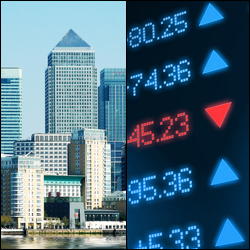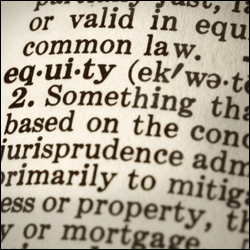
Whilst, there are pros and cons to both, here Finspreads talks through the differences but focuses on the advantages financial spread betting has to offer over standard trading methods.
Buying and Selling Markets
Spread betting makes a falling market as potentially profitable as a rising one.Spread betting is a derivatives product that allows you to trade on the price movements of thousands of global financial markets including stock market indices, shares, currencies, commodities and more.
You can go long or short on market prices, making it possible to profit even when prices are falling. If you go long, your profits will rise in line with any increase in that price. If you go short, your profits will rise in line with any fall.
There are of course ways for a standard trader to turn a profit from a falling market (short selling or purchasing PUT options, to name but two). However both these methods tend to prove significantly more difficult than spread betting.
Spread Betting is Tax-Free*
Spread betting is exempt from UK stamp duty and UK Capital Gains Tax. However, tax laws are subject to change and depend on individual circumstances. Please seek independent advice if necessary.Unlike standard share trading, a spread bettor never actually owns the shares on which they spread bet. This means that your spread betting income is not currently taxable in any way, for the time being at least. This is why spread bettors should always watch tax law changes like hawks.
Spread Betting is Commission Free
Because trading commission is already incorporated into the ‘spread’ when you open a position, the main costs in spread betting are those of actually funding your account and of the spread itself.What is more, thanks primarily to falling interest rates, long-term financial spread betting positions are a far more viable option than they once were.
Today, many financial spread bettors are content to maintain single spread bets for the best part of a year.
Spread Betting or Share Trading? Leverage
Spread betting is a leveraged product. When you place a spread bet on a price movement, you only deposit a small percentage of your full stake. This is known as the leverage and it has the potential to increase your spread betting profits (and losses).To place a spread bet, you must have sufficient funds on account to cover the initial margin.
In essence, the leverage makes it possible for you to replicate the same position as a standard trader, only with a much smaller initial outlay and with a much greater potential return.
The leverage is a double-edged sword though, while it can magnify your profits, it can magnify your losses in exactly the same way. Never trade without meticulous market analysis.
Spread Betting Offers an Immediate Form of Trading
No share certificates, no phone calls to your broker, no problem. Online spread betting is a very in-the-moment style of trading. You can feel an impulse to go long on Company ABC at 9am and have your spread betting position open by 9.01.Having said that, online share brokers are also quite quick these days.
Trading Shares

If you want to buy or sell shares you have to contact a broker, the broker contacts their representative on the floor of the exchange and they find another representative who wants to buy or sell those shares, i.e. the opposite side of the transaction.
This is not as difficult as it sounds because there are often buyers and sellers for most shares.
Share Trading Costs
Sometime the cost is a percentage of the transaction value. The commission on shares costing £100,000 might be as much as £2,000, which means your investment will have to grow by at least 2% before showing any profit.Alternatively, many online brokers will charge a flat fee of £5-£15 per transaction.
Naturally, buying AND selling shares often involves two transactions, so don’t forget to factor in the second charge.
Which Are Lower? Share Trading Costs or Spread Betting Costs?
This is not so clear cut and will depend up the size and frequency of your trading.We mentioned above that financial spread betting is tax-free* and commission free. However with spread betting if you use one of the popular ‘Rolling’ markets then there is often a financing fee.
A rolling market, also known as a Daily Funded Bet (DFB) is a trade that automatically rolls into the next trading day if you don’t close it.
The overnight financing fee, if you ‘buy’ a trade, is often around “LIBOR +2%”. Libor +2% is certainly not penal but it can add up over time.
If you sell the market then you are in effect loaning the spread betting company money. Therefore, you may sometimes receive a small fee of LIBOR -2%. For worked examples see our guide to rolling daily trades.
For short-term ‘buy’ trades, rolling spread betting markets can be quick, cheap and efficient. However, for long-term ‘buy’ trades, buying the physical shares through an online broker can be cheaper.
If you want to short sell a market then spread betting and CFDs are far more convenient.
Note that some spread betting companies offer quarterly futures markets where there are no overnight financing fees but the spreads are wider.
Spread Betting v Share Trading Summary
- Spread betting is often cheaper for short-term trading
- Share trading is often cheaper for long-term trading
- Spread betting is leveraged and therefore high risk
- Spread betting lets you short sell a market
- A spread betting account gives you access to a range of non-share markets
According to Joshua Raymond, Market Strategist, City Index:
The main advantage of spread betting is that all profit is currently free from Capital Gains Tax in the UK*. This immediately saves the regular share trader 18% of their profits.
Although financial spread betting and share trading are not mutually exclusive ways of trading.
Many share traders use spread betting as a natural part of their wider investment portfolio. For example, they may hold long term shares physically but may also like to mix this with some short term speculating and this is where spread betting can be tremendously flexible.
Spread betting and CFD trading carry a high level of risk to your capital and you may lose more than your initial investment. Spread betting and CFD trading may not be suitable for all investors. Only speculate with money that you can afford to lose. Please ensure you fully understand the risks involved and seek independent financial advice where necessary.
